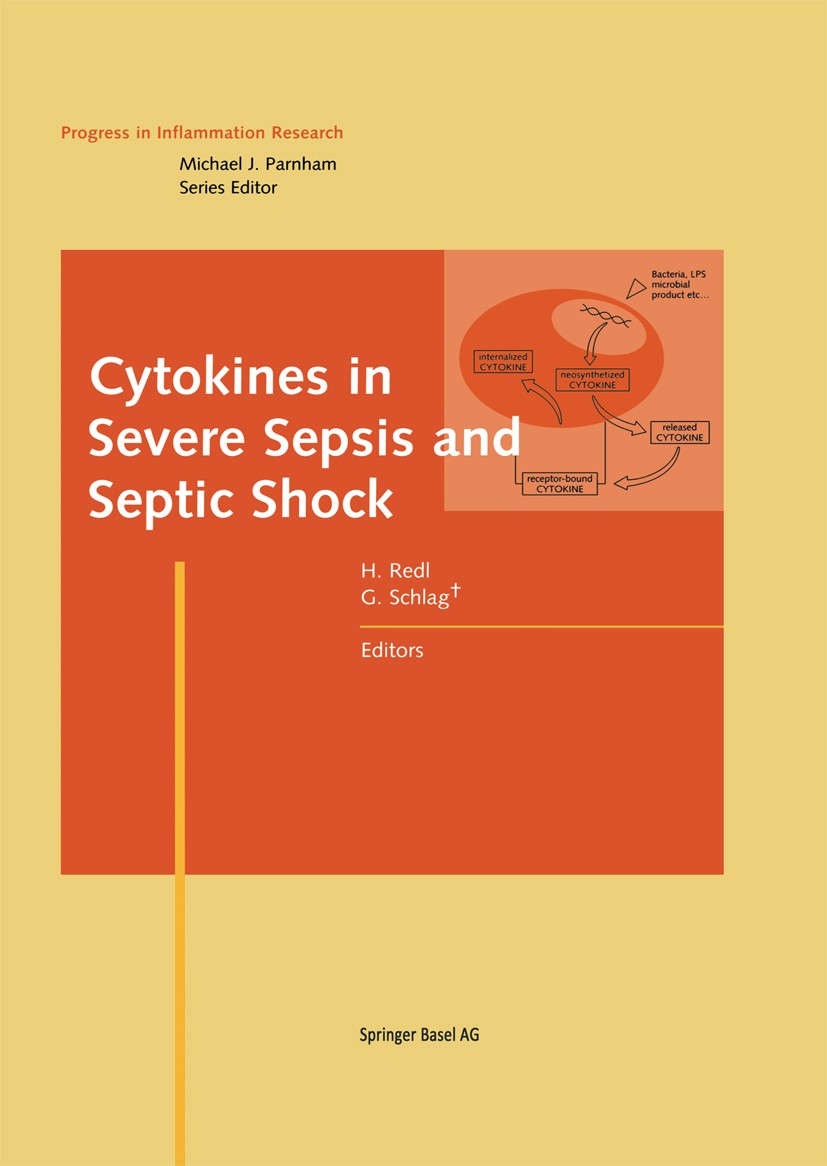| 书目名称 | Cytokines in Severe Sepsis and Septic Shock |
| 编辑 | Heinz Redl,Günther Schlag |
| 视频video | http://file.papertrans.cn/243/242649/242649.mp4 |
| 丛书名称 | Progress in Inflammation Research |
| 图书封面 |  |
| 描述 | t Heinz Red! and Gunther Sch!ag Ludwig Boltzmann Institute for Experimental and Clinical Traumatology, Vienna, Austria The word "sepsis" derives from the Greek meaning decay or rottenness. Tradition ally this term has been used to describe the process of infection accompanied by the host‘s systemic inflammatory response. Based on that understanding, previous clin ical studies have been designed to include only patients with positive blood cultures [1, 2]. However, the frequent occurrence of a septic response without the demon stration of microorganisms in the circulation has led to a new definition and under standing of sepsis, mainly as the systemic response of the host to an often unde tectable microbiological or non-microbiological process [3]. The general consensus is that cytokines are central to the inflammatory response, particularly in sepsis. It is now known that not only Gram-negative but also Gram positive, viral, and fungal infections initiate the complex cascades of cytokine release. Probably the most important aspect of bacterial action is the release of toxic bacterial products. In particular endotoxin from Gram-negative bacteria (see chap ter by Schade) and s |
| 出版日期 | Book 1999 |
| 关键词 | Sepsis; clinical trial; cytokine; gene therapy; genetics; immunomodulation; inflammation; intensive care; me |
| 版次 | 1 |
| doi | https://doi.org/10.1007/978-3-0348-8755-7 |
| isbn_softcover | 978-3-0348-9759-4 |
| isbn_ebook | 978-3-0348-8755-7Series ISSN 1422-7746 Series E-ISSN 2296-4525 |
| issn_series | 1422-7746 |
| copyright | Springer Basel AG 1999 |
 |Archiver|手机版|小黑屋|
派博传思国际
( 京公网安备110108008328)
GMT+8, 2026-1-30 03:00
|Archiver|手机版|小黑屋|
派博传思国际
( 京公网安备110108008328)
GMT+8, 2026-1-30 03:00


